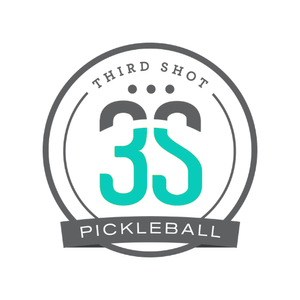Pickleball is fast. It’s easy to get lost in the points and hit the ball wherever it’s easiest. However, if you want to improve and win more points, you need to move beyond reacting or just getting the ball over the net. Every shot you hit should serve a purpose. That’s the difference between just playing… and playing well.
strategy
Pickleball Strategy, Pickleball Technique
Turning the Tide in a Point: How to use Defensive Strategies to stay in the Game
Defence is just as important as offence. Knowing how to handle an aggressive opponent can change the direction of a match. When you’re under pressure, giving yourself more time can help you reset and get back into position. Remember, hitting the ball slower with more shape can provide more time in comparison to hitting the ball faster and straight, which can take away time. A soft reset shot is one of the best ways to regain control and break their momentum. By taking the pace off the ball and dropping it into the non-volley zone, you force your opponent to move from attacking to dinking, giving yourself time to recover.
Teamwork Makes the Dream Work: The Importance of Teamwork and Court Positioning in Doubles
Great doubles teams don’t just hit great shots—they work together seamlessly. The best partners move as a unit, communicate effectively, and cover the court strategically. When you and your partner are in sync, you force your opponents into challenging situations while setting yourselves up for success.
Pickleball Technique, Pickleball Strategy
Set Yourself Up for Success: The Key To An Effective Setup
Death of the Meaningless Return
It’s official: the return of serve has now become a key shot in pickleball. While some old-school coaches and players may still refer to it as the shot you have to play before the “real” game starts, watch any advanced players and you’ll quickly discover that this just simply isn’t so. Increasingly, the return of serve is used to gain an advantage against the serving team and to give the returners better opportunities at the net. Here are a few ways in which they do it:
Return Deep. Pinning your opponent behind the baseline does a few things to make your life at the net easier. First, it means that they have the ball to you from a longer distance. Since the baseline to the net is 22 feet and you’re (presumably) seven feet beyond that at your own kitchen line, that means they have to hit 29 feet -- at least! -- to get the ball back to you. That gives you a lot of time to get ready for their shot. Conversely, if you return short and let them move inside the baseline to hit the ball, you’ll have less time to get prepared.
Aim for a Weakness. Don’t just hit anywhere but aim for a spot that will annoy your opponents. This could mean hitting to a particular person (see this video about picking on the weaker opponent) or it could be just aiming for a backhand. Is there more risk? Of course. But there is also great reward to be had.
Use Spin. Whether it is topspin, sidespin or backspin, hitting your return with spin can cause your opponent to play a less-than-ideal shot. It gives them one more thing to worry about as you approach the net for the volley.
Take Away Time. Whether it is because you are hitting the ball hard or hitting on the rise, give your opponents less time to prepare for the third shot. This will put them under pressure and can cause them to make bad decisions. Just make sure you give yourself sufficient time to get to the kitchen!
Of course, whenever you attempt to make a higher quality shot you risk a drop in consistency. But with a little deliberate practice and some patience, you can turn your return of serve into a shot that sets you up to win more points rather than being a meaningless shot that lets your opponents off easy.
Have something to say about this? Send an e-mail to mark@thirdshotsports.com and let us know what you think!
